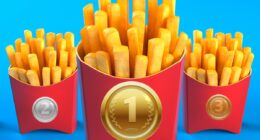Your brain is naturally wired to solve complex problems while you sleep. Have you ever struggled with a difficult problem and couldn’t find the solution despite staying up late to work on it? Surprisingly, you wake up with the answer after a
. This is the brain’s way of processing information during sleep. Studies have demonstrated that sleep helps identify challenging tasks and resolve them overnight.
Pulling an all-nighter is not a viable solution either. It has been associated with lower grades, and its negative effects can last up to four days,
and reasoning abilities.
READ RELATED: Common Mental Health Disorders Among Low-Income Population
Additionally, attempting to wake up early and cram before an exam can be counterproductive as it interferes with the essential rapid-eye-movement (REM) sleep, which aids in memory consolidation. Reviewing your notes excessively might not be as helpful as you think and may impact what you have already learned.
Advertisement
Instead, adopting a regular sleep schedule is crucial, especially when approaching an important exam. It’s advisable to stick to this schedule during the weekend as well, even if the exam is on a Monday, as the effects of sleep deprivation can linger for several days and affect your performance on Monday morning (2✔ ✔Trusted Source
Sleep quality, duration, and consistency are associated with better academic performance in college students
Go to source
).
Power Naps May be the Answer and not Caffeine
If you feel drowsy during the day, take a power nap instead of relying on caffeine. While caffeine can keep you awake, it doesn’t contribute to processing what you’ve learned. A short nap, lasting less than 20 minutes, can recharge your brain and provide an energy boost without leaving you feeling groggy.
Reference :
- Causes and consequences of sleepiness among college students – (https://www.ncbi.nlm.nih.gov/pmc/articles/PMC4075951/)
- Sleep quality, duration, and consistency are associated with better academic performance in college students – (https://www.ncbi.nlm.nih.gov/pmc/articles/PMC6773696/)
Source: Medindia









